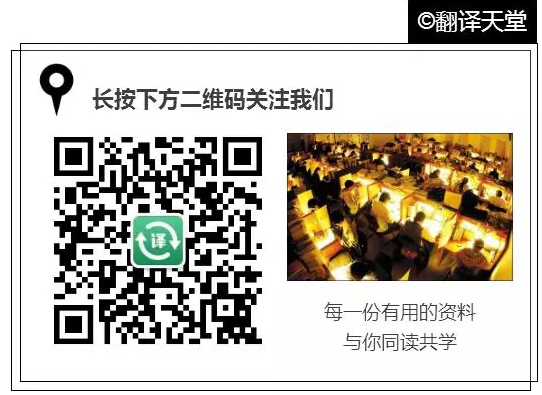翻译天堂 2016-10-02
滚球
4岁那年在大西洋城,我从货场一辆火车上摔下来,头先着地,于是双目失明。现在我已经32岁了。我还模糊地记得阳光是多么灿烂,红色是多么鲜艳。能恢复视觉固然好,但灾难也能对人产生奇妙的作用。有一天我突然想到,倘若我不是盲人,我或许不会变得像现在这样热爱生活。现在我相信生活,但我不能肯定如果自己是明眼人,会不会像现在这样深深地相信生活。这并不意味着我宁愿成为盲人,而只是意味着失去视力使我更加珍惜自己其他方面的能力。
I lost my sight when I was four years old by falling off a box car in a freight yard in Atlantic City and landing on my head. Now I am thirty two. I can vaguely remember the brightness of sunshine and what color red is. It would be wonderful to see again, but a calamity can do strange things to people. It occurred to me the other day that I might not have come to love life as I do if I hadn't been blind. I believe in life now. I am not so sure that I would have believed it so deeply, otherwise. I don't mean that I would prefer to go without my eyes. I simply mean that the loss of them made me appreciate the more what I had left.
我认为,生活要求人不断地自我调整以适应现实。人愈能及时地进行调整,他的个人世界便愈有意义。调整决非易事。我曾感到茫然害怕,但我很幸运。父母和老师在我身上发现了某种东西——可以称之为活下去的潜力吧——而我自己却没有发现。他们激励我与失明拼搏到底。
Life, I believe, asks a continuous series of adjustments to reality. The more readily a person is able to make these adjustments, the more meaningful his own private world becomes. The adjustment is never easy. I was bewildered and afraid. But I was lucky. My parents and my teachers saw something in me—a potential to live, you might call it—which I didn't see, and they made me want to fight it out with blindness.
我必须学会的最艰难的一课就是相信自己,这是基本条件。如做不到这一点,我的精神就会崩溃,只能坐在前门廊的摇椅中度过余生。相信自己并不仅仅指独自走下陌生的楼梯的那种自信,那只是一部分。我指的范围更大:它是一种信念,相信自己虽然生理有缺陷,却是一个真正的人,一个有进取心的人;相信在形形色色的世人中间,经过努力,我可以找到适合自己的特殊位置。
The hardest lesson I had to learn was to believe in myself. That was basic. If I hadn't been able to do that, I would have collapsed and become a chair rocker on the front porch for the rest of my life. When I say belief in myself I am not talking about simply the kind of self-confidence that helps me down an unfamiliar staircase alone. That is part of it. But I mean something bigger than that: an assurance that I am, despite imperfections, a real, positive person; that somewhere in the sweeping, intricate pattern of people there is a special place where I can make myself fit.
我花了很长时间才树立并不断加强这一信念。这要从最简单的事做起。有一次,一个人给我一个室内玩的棒球,我以为他在嘲笑我,心里很难受。“我不能玩,”我说。“你拿着,”他竭力劝我,“在地上滚。”他的话在我脑子里生了根。“在地上滚!”滚球使我听见它朝哪儿滚动。我马上想到一个我曾认为不可能达到的目标:打棒球。在费城奥弗布鲁克盲人学校,我发明了一种很受人欢迎的棒球游戏,我们称它为地面球。
It took my years to discover and strengthen this assurance. It had to start with the most elementary things. Once a man gave me an indoor baseball. I thought he was mocking me and I was hurt. "I can't use this," I said. "Take it with you," he urged me, "and roll it around." The words stuck in my head. "Roll it around!" By rolling the ball I could hear where it went. This gave me an idea how to achieve a goal I had thought impossible: playing baseball. At Philadelphia's Overbrook School for the Blind I invented a successful variation of baseball. We call it ground ball. We called it ground ball.
这一辈子我已经树立了一系列目标,然后努力去达到,一次一个。当然我必须了解自己有限的能力,若开始就知道某个目标根本达不到却硬要去实现,那不会有任何好处,因为那只会带来失败的苦果。虽然有时我也失败过,但一般来说我总有进步。
All my life I have set ahead of me a series of goals and then tried to reach them, one at a time. I had to learn my limitations. It was no good to try for something I knew at the start was wildly out of reach because that only invited the bitterness of failure. I would fail sometimes anyway but on the average I made progress.
陈宏薇 译











